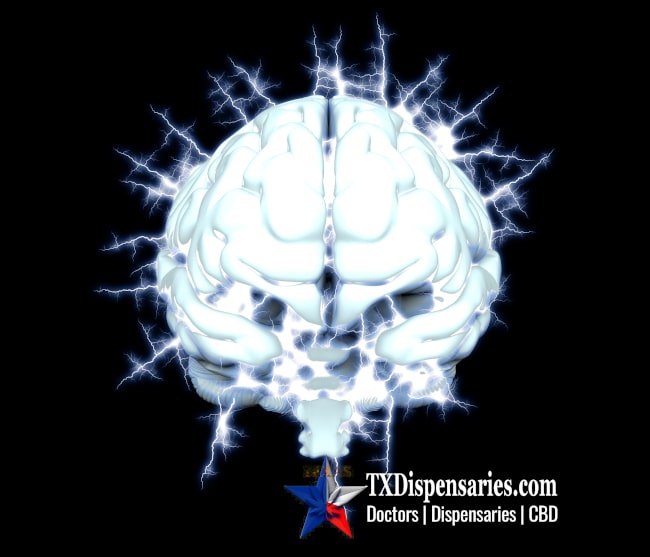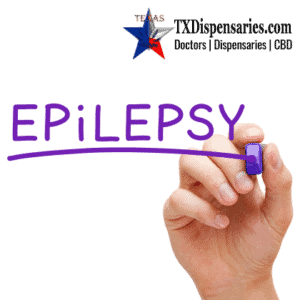
Treating Multiple Sclerosis With Medical Cannabis
Can medical marijuana help Texas multiple sclerosis sufferers find some relief from symptoms? According to the authors of one report, “In addition to symptom management, cannabis may also slow down the neurodegenerative processes that ultimately lead to chronic disability…” In this post, we’ll talk a bit about MS and how cannabis oil is being used by some Texans to treat this debilitating condition.
Texas’ Medical Marijuana Program
Texas’ medical marijuana program now permits doctor-approved MS patients in the state to treat their condition with high-CBD, low-THC cannabis oil. But is it effective?
A significant number of encouraging studies indicate the efficacy of CBD oil and other CBD-infused products in Multiple Sclerosis treatment.
The full effects have yet to be adequately documented, and more research is required. However, supplementation with CBD is helping thousands of Texas’ MS sufferers enjoy a higher quality of life and slow the progression of their condition.
What Is Multiple Sclerosis or MS?
Multiple sclerosis is a devastating, life-threatening disease that causes the immune system to destroy the protective myelin sheath surrounding healthy neurons. When the myelin sheath is eroded, there is a disruption in signal transmission throughout the central nervous system. This disruption, over time, will impair coordination and motor function.
MS comes with a host of debilitating symptoms such as blurred vision, double vision, blindness in one eye, slurred speech, muscle weakness, dizziness, fatigue, numbness, bowel and bladder dysfunction, tremors, and electric shock sensations. At this time, there is no cure in sight.
MS can manifest at any age but occurs most frequently in individuals between the ages of 20 to 40.
Females seem to be the most vulnerable to MS and are three times more likely to acquire the condition than males.
Genetics may play a significant part in determining whether or not an individual acquires MS, especially if a sibling or parent suffers from the condition.
Northern European Caucasians seem to be the demographic at the highest risk for getting MS. Native Americans, Africans, and Asians appear to be the lowest risk group.
It is believed that certain viruses, such as Epstein-Barr (the virus that triggers mononucleosis) are linked to the acquisition of MS.
Some of the standard protocols utilized in the treatment of MS induces numerous, harmful side effects. Moreover, many of these medications offer little to no protection from the further progression of the disease.
Can Medical Marijuana Help Treat MS Symptoms?
CBD oil is an extraction of the Cannabis sativa plant, also known as hemp. There is only a trace amount of THC (the psychoactive agent in cannabis) in hemp, and as a result, CBD oil doesn’t have any intoxicating or “high” effects and is available over the counter. However, in Texas, card-carrying medical marijuana patients have access to cannabis oils with up to 0.5 percent THC.
Numerous studies are in the works to determine how CBD works on a systemic level in the human body.
A common issue with neurological disorder such as MS is the chronic inflammation of neurons. Cannabidiols have been shown to produce strong anti-inflammatory responses that may actually slow the onset of neurological diseases.
Furthermore, cannabidiols have antioxidant properties and are known to protect against the degeneration of neurons and nerve cells in the brain.
Multiple studies have reported the potential of CBD-rich oils to control, minimize, and possibly eradicate seizures altogether.
Cannabis is known to alleviate inflammation and chronic pain that comes with MS. Furthermore, some cannabis studies indicate great success in the treatment of depression and fatigue triggered by the pain associated with these terrible neurodegenerative disorders. Sufferers report an overall sense of wellbeing, increased mobility, and a better quality of life when using cannabis.
Research On CBD For Multiple Sclerosis And Parkinson’s Disease
Although medical marijuana is growing in popularity, there is much controversy in regard to the utilization of cannabis products in the treatment of neurodegenerative diseases such as MS and Parkinson’s disease.
There is also substantial lab, clinical, and anecdotal evidence to endorse the utilization of cannabis for these terrible diseases, as well as a host of other neurodegenerative disorders.
Here are some quotes and examples from these studies. Links to these and other studies can be found at the end of this article.
- Dr. Sanchez-Ramos indicated in an early study, that cannabinoids facilitate neuroprotective and anti-oxidative actions. The report makes the claim that cannabinoids can potentially “slow the onset and progression of neurodegenerative conditions.”
- In a research review from 2012, Dr. Andras Bilkei-Gorzo said: “At first sight, it is striking that cannabinoid agonists, substances known to impair cognitive functions, could be beneficial in neurodegenerative cognitive disorders. However, [we found] cannabinoid receptor activation could reduce oxidative stress and excitotoxicity, suppress neuroinflammatory processes, and thus alleviate the symptoms of neurodegenerative motor and cognitive diseases.”
- The British Journal of Pharmacology concluded in March 2014 that: “A common issue with neurological disorders is the chronic inflammation of neurons. Both THC and CBD have been shown to produce strong anti-inflammatory responses that may trigger the onset of neurological diseases. Furthermore, THC and CBD have antioxidant properties and are known to protect against the degeneration of neurons and nerve cells in the brain.”
- In August 2015, in an evidence-based systematic review, the American Academy of Neurology reported the efficacy or probable efficacy of cannabinoids for the treatment of neurological disorders. This review was based on randomized, controlled trials in which cannabis demonstrated the ability to alleviate spasticity and central pain associated with neurodegenerative disorders. And in 1998, the British House of Lords presented this evidence, prompting one lawmaker to state: ”We have seen enough evidence to convince us that a doctor might legitimately want to prescribe cannabis to relieve… the symptoms of multiple sclerosis and that the criminal law ought not to stand in the way.”
- The data were examined by Scientists from London’s Institute of Neurology who stated: “In addition to symptom management, cannabis may also slow down the neurodegenerative processes that ultimately lead to chronic disability in multiple sclerosis and probably other neurodegenerative diseases.”
- The Canadian Journal of Neurological Sciences reported a similar outcome in one of their studies. They reported that 96 percent of the participants using cannabis products experienced profound relief from their MS symptoms. The authors concluded: “This is an exciting time for cannabinoid research. There is a growing amount of data to suggest that cannabis can alleviate symptoms like muscle spasticity and pain in patients with MS.”
- In a UK-based survey from 2005, it was discovered that 43 percent of MS sufferers were administered cannabis products for the relief of symptoms. Almost three-quarters of said patients reported an improvement of their symptoms such as pain and spasticity.
- And finally, GW Pharmaceuticals, a company based in the UK, has been successfully developing cannabinoid-based medications. In clinical trials, GW’s Sativex appeared to have greater efficacy than a placebo at reducing spasticity and pain. The results were so impressive, that the Canadian government gave their approval to market Sativex as a protocol for MS.
Medical Marijuana Vs. Traditional MS And Parkinson’s Treatment
Traditional medications used in the treatment of MS and Parkinson’s offer some relief from symptoms, but create many unwanted, debilitating side effects. Some of the side effects for MS medications include slurred speech, abdominal pain, blurred vision, constipation or diarrhea, and, in some cases even death.
Most patients suffering from MS or Parkinson’s Disease report only mild side effects such as drowsiness, changes in appetite, and diarrhea when using cannabis products. This last effect may have more to do with the poor quality of the products and not a direct overall effect of CBD oil.
The THC content in some medical cannabis may have an intoxicating effect that impairs motor and cognitive skills. However, in Texas, medical marijuana products can contain only contain small amounts of THC and produce only mild intoxicating effects if any.
Get Started Towards Texas Medical Marijuana

Sign Up for Medical Cannabis in TX
For potential medical marijuana patients we make it easy to connect with a recommending doctor online. You will also receive updates & news relative to medical marijuana in Texas. If you are interested, simply fill out the MMJ patient registration form to get started. Legal Residents Only.

MMJ Patient Registration Form

Sources and additional reading
- Cannabis use in patients with multiple sclerosis
- Cannabidiol to Improve Mobility in People with Multiple Sclerosis
- MS News – CBD and Multiple Sclerosis: What You Need to Know
- Project CBD – TRPV1 Protects Neurons In Multiple Sclerosis
- Meta-analysis of cannabis-based treatments for neuropathic and multiple sclerosis-related pain
- CBD counteracted the development of experimental MS
- Sativex for the management of multiple sclerosis symptoms
- THC & CBD oromucosal spray (Sativex®) in the management of spasticity associated with multiple sclerosis
- Clinical efficacy and effectiveness of Sativex, a combined cannabinoid medicine, in multiple sclerosis-related spasticity








